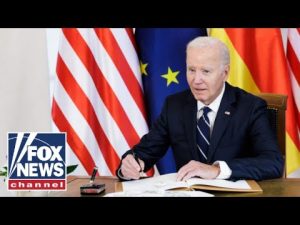Megyn Kelly blasted former President Barack Obama in her latest show, accusing him of being self-absorbed while Americans suffer. The conservative commentator didn’t hold back, claiming Obama spends his days focused on his own legacy rather than the country’s pressing issues. This attack comes amid Kelly’s ongoing criticism of the Obamas’ marriage and character.
Kelly specifically mocked Obama for “sitting around on a June Thursday thinking about HIMSELF,” suggesting this reflects his entire post-presidency mindset. Her criticism targets what she sees as Obama’s egotism while inflation and border crises plague everyday Americans. This aligns with her history of confronting the Obamas’ public image.
The conservative host has repeatedly questioned the Obamas’ marriage, even declaring they “married the wrong people.” She cites Michelle Obama’s podcast admissions about marital struggles as proof. Kelly contrasts this with her own 17-year “perfect” marriage while dismissing Michelle’s relationship advice as hypocritical.
Michelle Obama’s recent expressions of fear for her daughters’ safety under current policies drew Kelly’s sharp rebuke. Kelly ridiculed the former First Lady for “playing the victim” despite her privileged life with police escorts. This follows Kelly’s pattern of attacking Michelle’s public statements as constant “whining” about systemic issues.
Barack Obama recently admitted to working on his marriage after strains during his presidency, a confession Kelly used to bolster her critique. She framed his relationship efforts as further evidence of self-absorption rather than addressing national concerns. Her commentary emphasizes how Obama prioritizes personal matters over public service.
Kelly’s relentless targeting of the Obamas reflects broader conservative frustration with their ongoing cultural influence. She positions herself as a truth-teller exposing elite hypocrisy while ordinary Americans face real hardships. Her rhetoric resonates with audiences who view the Obamas as symbols of liberal disconnect.
The timing coincides with Obama’s increased public appearances, which Kelly portrays as self-promotional. She argues his focus remains on cementing his legacy rather than contributing solutions to current crises. This perspective challenges mainstream media narratives celebrating Obama’s post-presidency activities.
Conservatives applaud Kelly for directly confronting what they see as the Obamas’ undeserved moral authority. Her commentary fuels arguments that liberal elites prioritize personal image over national stability, reinforcing a core conservative critique of Democratic leadership. Kelly’s blunt style embodies the populist conservative approach to media commentary.







